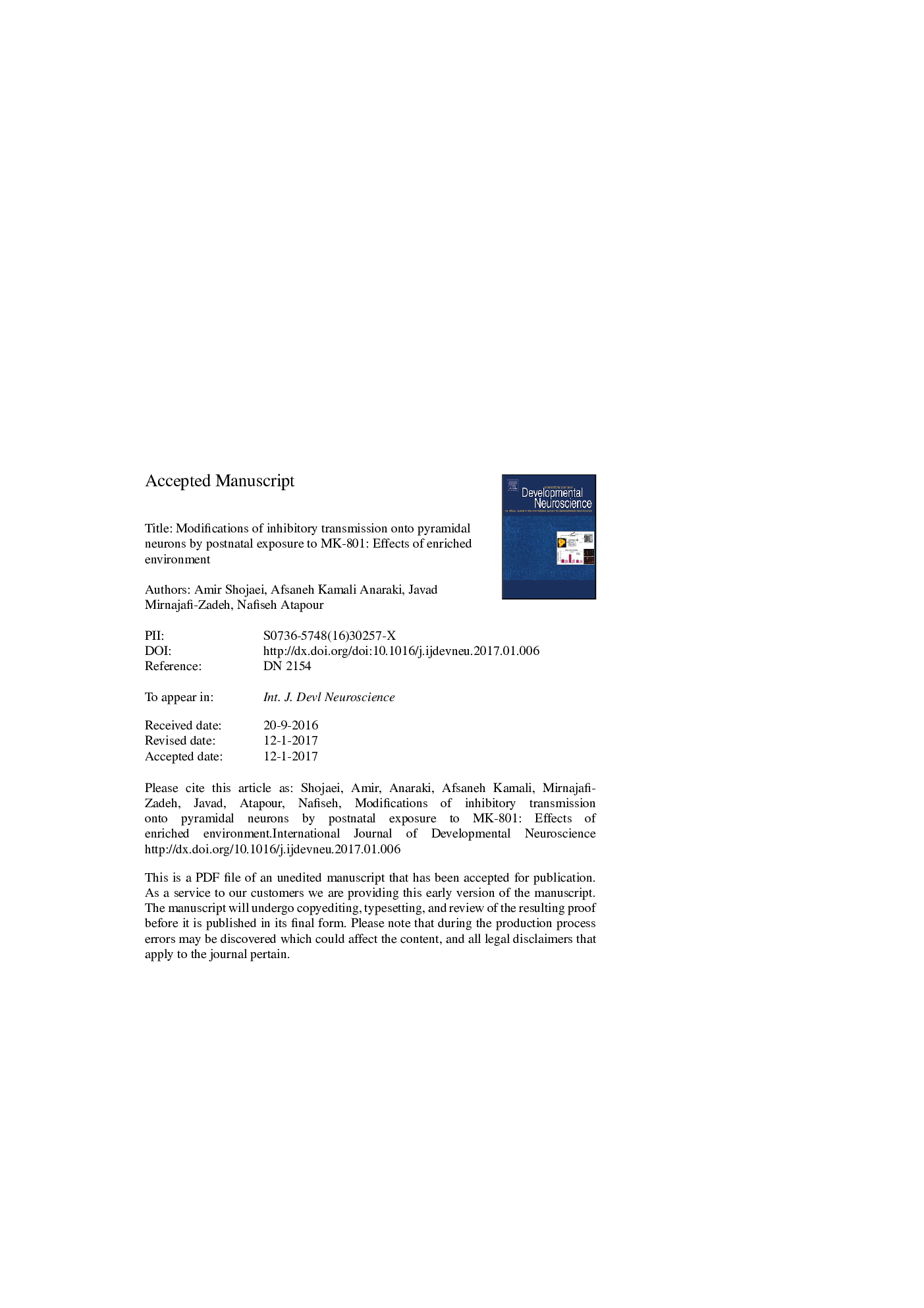| Article ID | Journal | Published Year | Pages | File Type |
|---|---|---|---|---|
| 5585755 | International Journal of Developmental Neuroscience | 2017 | 20 Pages |
Abstract
Early enriched environment (EE) prevents several deficits associated with postnatal MK-801 [N-Methyl-d-Aspartate (NMDA) receptor antagonist] treatment such as cognitive and locomotor deficits. We sought physiological correlates to such changes by looking at inhibitory synaptic inputs onto pyramidal cells in a prefrontal cortex slice preparation. Pharmacologically isolated γ-amino-butyric acid A (GABAA) receptor-mediated currents were measured using whole-cell patch clamp recordings. Wistar rats were raised in standard or EE from birth up to the time of experiments and were injected with saline or MK-801 (1 mg/ kg) on postnatal days (P) 6-10. We recorded miniature inhibitory post-synaptic currents (mIPSCs) of pyramidal cells in layer II/III of prefrontal cortex and measured their frequency, amplitude and kinetics. In control animals, the amplitude and frequency of mIPSCs increased strikingly during development from P21 to P28. MK-801 accelerated the development of mIPSCs frequency but caused a significant decrease in the amplitude of mIPSCs on P28 suggesting a significant reduction of inhibition onto pyramidal cells. EE per se led to a significant increase in both frequency and amplitude of mIPSCs, but its application to MK-801-treated rats resulted in moderate rescue of GABAergic transmission on P28. We conclude that postnatal MK-801 leads to reduced inhibitory transmission onto pyramidal cells of prefrontal cortex at adolescence which may underlie behavioural and morphological differences detected in vivo in rats. EE presentation from birth rather prevents GABAergic alterations associated with postnatal MK-801 treatment at adolescence.
Related Topics
Life Sciences
Biochemistry, Genetics and Molecular Biology
Developmental Biology
Authors
Amir Shojaei, Afsaneh Kamali Anaraki, Javad Mirnajafi-Zadeh, Nafiseh Atapour,
